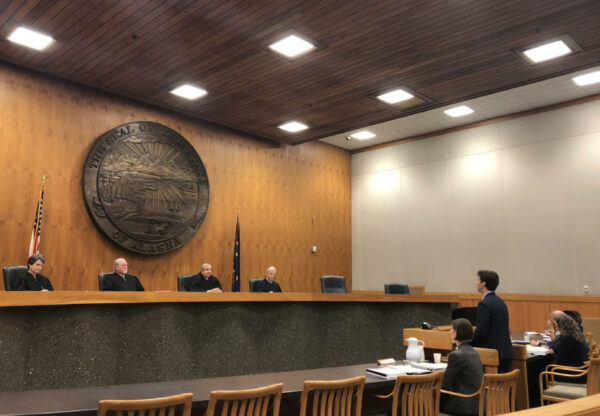
If the Alaska Legislature wants to reject a governor’s appointees, it will have to take a vote on them, the state Supreme Court said in an opinion issued on Friday.
The court had ruled in April that Gov. Mike Dunleavy’s appointees had remained in office despite the Legislature’s failure to meet to confirm them last year during the pandemic. It reversed a Superior Court judge’s ruling against the governor.
But the court hadn’t released its full reasoning until Friday.
Justice Peter Maassen wrote that the record from Alaska’s constitutional convention in 1955 showed the importance the delegates placed on holding a joint session for votes on the governor’s appointments.
The Legislative Council had maintained that the positions had been vacated. It pointed to a 1964 state law that said that failure to hold a vote is tantamount to declining an appointment.
But the Supreme Court found that the language of that law was contrary to the plain language of the state constitution that the governor’s appointments are “subject to confirmation by a majority of the members of the legislature in joint session.”
The Legislative Council argued that the constitution only required joint sessions for the Legislature to confirm appointments, not for rejecting them. But the Supreme Court said that the word “confirmation” referred to the entire process of voting on appointments.
Normally, the Legislature holds a joint session once each year to vote on all of the appointments over the previous year. In May, the Legislature confirmed 174 appointments and rejected three. The Legislature has confirmed all of the governor’s cabinet appointments since he took office. The joint session is usually held toward the end of the regular session.
Andrew Kitchenman is the state government and politics reporter for Alaska Public Media and KTOO in Juneau. Reach him at akitchenman@alaskapublic.org.




